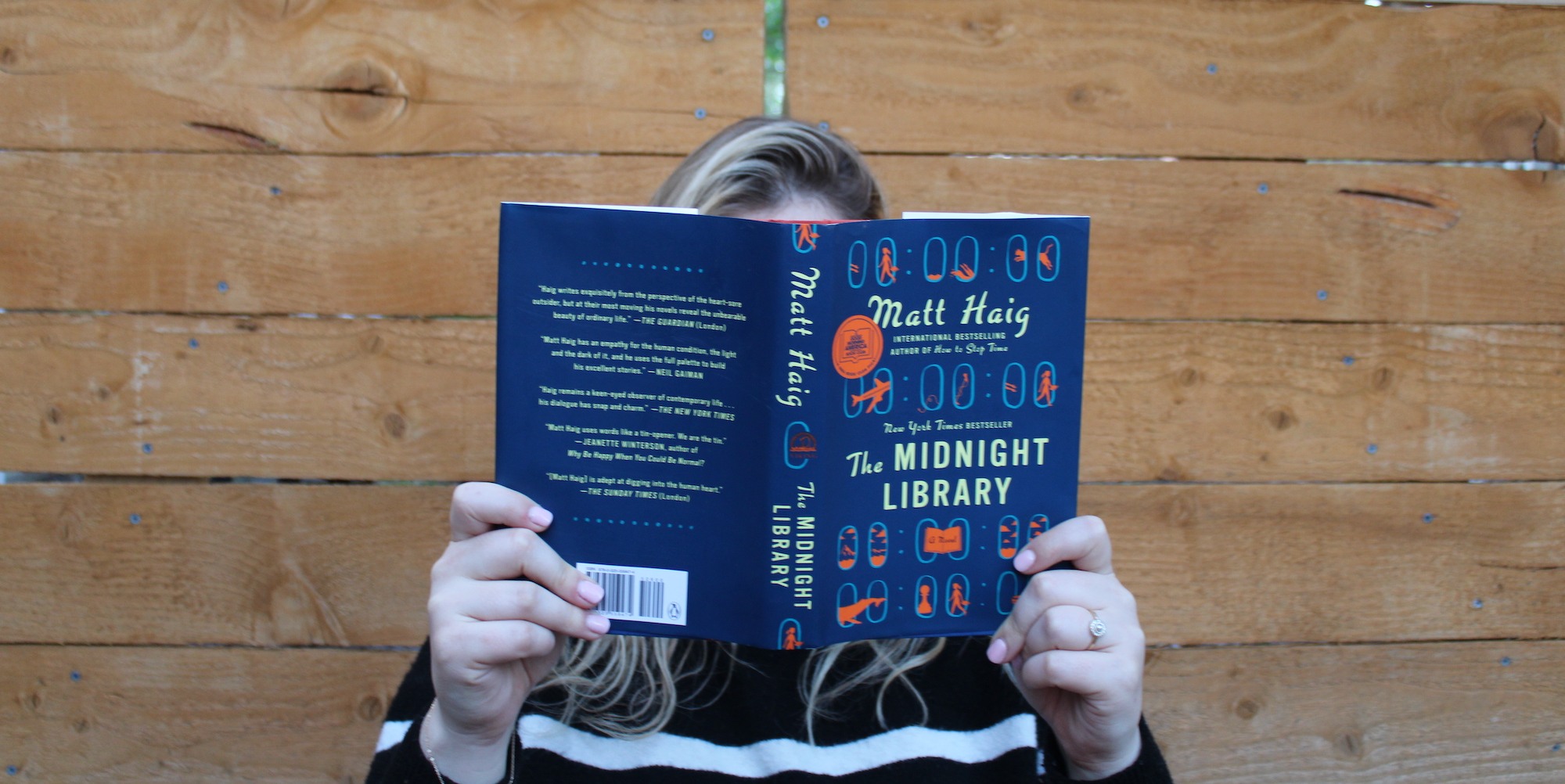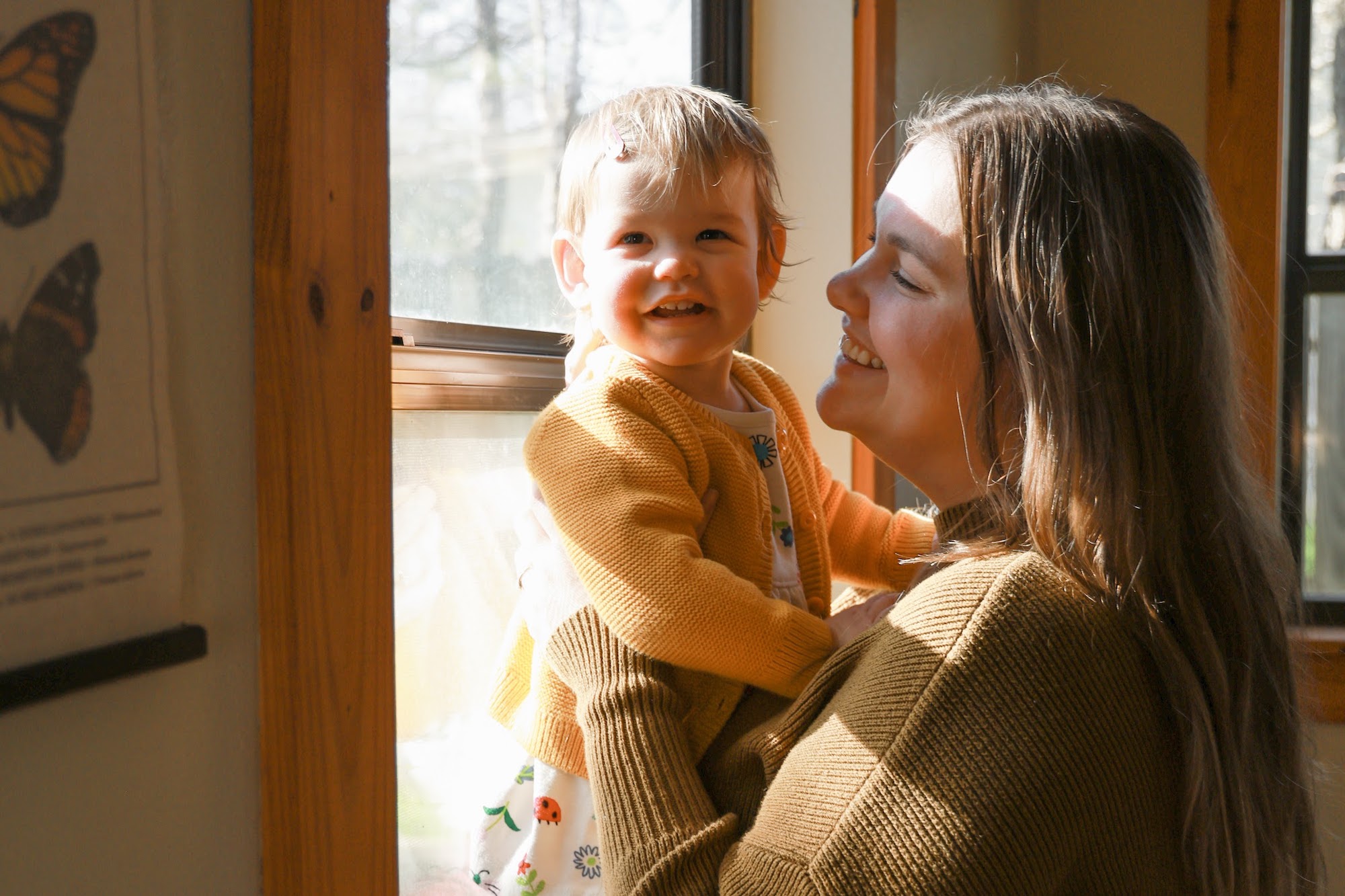Have you ever wondered what your life would be like if you had made different choices? Wandered down another path? Opportunities you passed up, relationships you left behind, paths you didn’t take. But what if you could see the way these other choices would have played out— what if you could live the life you didn’t choose? The Midnight Library explores all of these ideas and more in this novel about life, death, choice, possibility, and hope.
This is the first book I’ve read by author Matt Haig. The British author writes books for both adults and children, including one middle grade novel called, The Girl Who Saved Christmas. I would really like to read Reasons to Stay Alive, Haig’s memoir about his personal experience with depression and suicidal ideation. I wonder if some of the things he shares in that memoir help to inform his ideas and philosophies that appear in The Midnight Library.
Haig’s style of writing is straightforward and simple, in a way I appreciate immensely. There is little that is flowery or unnecessary; every word serves its purpose. Our main character, Nora Seed, is funny and relatable. Both her sense of humor and her heartbreaking pain emulate through the pages.
Nora Seed has been kicked around by life. On the day we meet Nora, everything seems to have gone wrong. Her parents are gone. Her brother doesn’t speak to her. She is failing at teaching music. Her broken engagement with Dan looms over her head. She can’t even keep her cat alive. Her one accomplishment seems to be completing a degree in philosophy, a lot of good that is doing her now. She’s given up so many wonderful opportunities, and now she’s left with no one but herself.
Nora believes she has disappointed absolutely everyone in her life, but most importantly, herself. Nora is full of regret. What would life have been like if Nora had stayed in the rock band? Pursued professional swimming? Gone through with the wedding? She’s had so many opportunities to make a great life, and she’s missed every one. Life hasn’t turned out to be what she thought it would be. She hasn’t turned out to be what she thought she would be. Drowning in misery and loneliness, Nora decides to take her own life.
Nora arrives in a place somewhere between life and death: The Midnight Library. The Library shelves are full of never ending books— possibilities for the lives Nora could have lived. Each of Nora’s choices have resulted in different lives with different homes, careers, and partners. Nora’s childhood librarian, Mrs. Elm, serves as her guide. In each book, Nora steps into another life she could have lived if she had made a different choice. She remains living inside each life until she inevitably finds disappointment in that life— upon which she arrives back in the Midnight Library. When she finally finds a life with no disappointment, she can stay there forever.
Stepping into each book, Nora finds out what it really would be like if she had married Dan, stayed in the rock band, moved to Australia with her best friend, become an olympic swimmer, or said yes to a coffee date with that cute guy down the road. Nora tries life after life, many of them beautiful and thrilling, but not one of them without the disappointment that always sends her back to the Library.
One book is different from the others— The Book of Regrets. Every regret Nora has is compiled into one heavy black book. Through each life, Nora explores her past regret, discovering that many of her regrets are unwarranted. The Book of Regrets gets lighter and lighter. And so does Nora.
Nora also gets to see the way her choices affect other people— for better or worse. Of course, Nora’s journey through her many lives brings up many philosophical questions for Nora and for the reader. Nora’s questions are guided by her knowledge of the philosophers, and readers are invited to unpack their own questions about the meaning of life.
How do we decide the meaning of life? Can you truly miss the life you were meant for? Can you actually make a choice so terrible that it ruins your life? Does disappointment determine how right our choices are? Disappointment, as Nora finds out, is a part of every life. And that does not mean the life is not worth living.
I want to note that while this story is funny and charming and full of hope, depression and suicide remain key elements of the story. Overall, these topics are presented in a way that is not too heavy or at all graphic. Still, you should know that this content is present and if reading about those topics affects you negatively, this book may not be the one for you. There is also a fair amount of commentary on alcoholism and addiction, which I found interesting and makes me wonder if the author has some personal connection to alcohol addiction.
Overall, I was completely swept into the world of Nora and her many lives. It was beautiful and thrilling and original and fun. This book is magically comforting and jolting at the same time. It’s like a hug and a shot of espresso rolled into one. The many questions this scenario naturally raises would make great discussion for a book club. This book is for anyone who is intrigued by the thought of parallel universes or for anyone who wonders what life would be like if they had just gone down that other path or made a different choice. If you are enchanted by the idea of trying on different lives, this book is for you. For those of you who prefer audiobooks, Carey Mulligan reads this one, which is completely wonderful.
Thank you for reading this review of Matt Haig’s, The Midnight Library. To stay up to date on all of my reviews, fiction and nonfiction, join my email newsletter below.
I wrote a blog post about five books that will help you create the life of your dreams. Read the post here.





